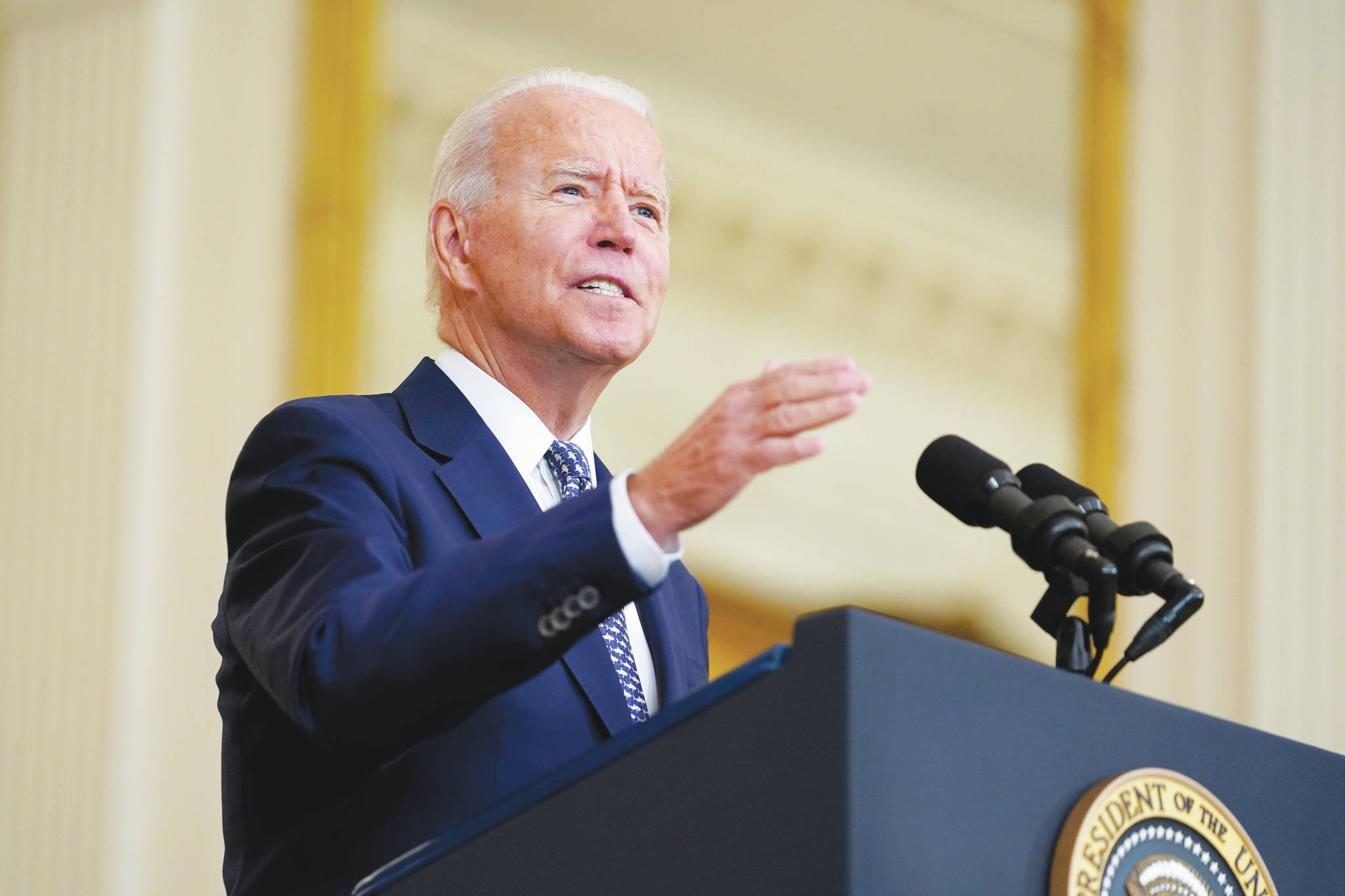The trillion-dollar Infrastructure Investment and Jobs Act passed with support in the U.S. Senate by a vote of 69-30 on Tuesday.
Efforts to advance the legislation, which includes $550 billion in new spending on infrastructure over five years, were spearheaded by a bipartisan group of lawmakers including U.S. Sen. Lisa Murkowski.
“This bill is a truly historic investment in our country and state,” Murkowski said in a press release Tuesday. “We prioritize legacy infrastructure projects that will improve transportation, allow us to remain connected, and create healthier communities. These initiatives will create new jobs and benefits that will pay forward for decades to come.”
That release also outlined specific implications of the legislation’s different elements for Alaska infrastructure. Included in the legislation is funding for roads and bridges, airports, buses and ferries, railroads, water, broadband and energy and natural resources, all of which would impact Alaska.
The bill provides $42 billion in grants to states for the deployment of broadband — where inequities became stark as people worked remotely throughout the COVID-19 pandemic — with a minimum allocation of $100 million for each state. That’s in addition to $2 billion through the Tribal Broadband Connectivity Grant Program, which would impact Alaska Native communities. The Kenai Peninsula Borough has worked separately over the past year to expand broadband access for residents through agreements with the Homer-based SPITwSPOTS, Inc., which constructed internet towers in rural borough communities.
The bill authorized $273 billion in federal-aid highway formula funding, through which Alaska would receive about $3.5 billion over five years to construct, rebuild and maintain roads and highways. That’s in addition to $225 million the state should receive to be used specifically on more than 140 “structurally deficient” bridges.
As the state with the most Marine Highway System miles, Alaska’s ferries also stand to benefit. The legislation includes $1 billion for a new program — proposed by Murkowski — that established “essential ferry service” to support rural communities and will provide funding to the Alaska Marine Highway System.
Alaska is also eligible to participate in an electric or low-emitting ferry pilot program, for which $250 million was included in the bill. That program says that at least one pilot is to be conducted in the state with the most Marine Highway System miles, which is Alaska. There are more than 3,100 miles of Marine Highway in Alaska, with most in Southeast Alaska.
All of that is in addition to $73 million Alaska should receive through the $342 million Construction of Ferry boats and Ferry Terminal Facilities Program and $2.25 billion for the Port Infrastructure Development Program.
As part of infrastructure related to natural resources, wildfire management and ecosystem restoration, the legislation includes $3.3 billion. That is meant to be used to conduct mechanical thinning, controlled burns, fuel breaks and other activities on U.S. Department of the Interior and Forest Service Lands. An additional $100 million is included for workforce training for firefighting and vegetation management that specifically includes Alaska Native village fire crews.
“The fuel breaks implemented on the Kenai, in particular, are credited with saving communities during the Funny River Fire,” the release says.
The bill also outlines funding for programs that stand to impact Alaska Native communities threatened by climate change, including $216 million to be used over five years for “tribal climate resilience,” of which $130 million is for community relocation and $86 million is for climate resilience and adaptation projects.
“This funding will provide access to resources to prepare and respond to the adverse effects of climate change, including community relocation if necessary and supported by the affected communities,” the release says.
The bill also identifies $20 million for the construction, reconstruction, operation and maintenance of recreation public use cabins, of which there are more than 50 in the Chugach National Forest and more than 155 in the Tongass National Forest.
For airports, three separate programs are funded through the bill passed Tuesday. $15 billion in formula funding was put toward the Federal Aviation Administration’s Airport Improvement Program; $5 billion will go to FAA’s Facilities and Equipment Program; and $5 billion will be put toward grants for a new Airport Terminal Improvement Program.
U.S. Sen. Dan Sullivan voted to pass the bill, but said in a press release distributed Tuesday that he has previously voted against procedural steps to move it forward, citing a need for more time and amendment votes, according to the release.
“While flawed in a number of ways, this bill addresses Alaska’s historic deficit in infrastructure in a way that I believe will be important for our state,” Sullivan said in a press release. “It has very significant funding for Alaska roads, water systems, ports, airports, our ferry system, bridges, and Coast Guard infrastructure.”
U.S. President Joe Biden celebrated bipartisan Senate approval of the legislation during remarks delivered from the East Room of the White House on Tuesday.
“I truly believe that this bill proves the voice of the people will be heard and that we can all come together to make a difference in people’s lives,” Biden said. “As you heard me say it before and I apologize for repeating it, but there are no Republican bridges or Democratic roads. This is a moment that lives beyond the headlines, beyond partisan soundbites, beyond the culture of instant outrage, disinformation, and conflict-as-entertainment.”
The bill will next head to the House of Representatives for debate.
Reach reporter Ashlyn O’Hara at ashlyn.ohara@peninsulaclarion.com.


